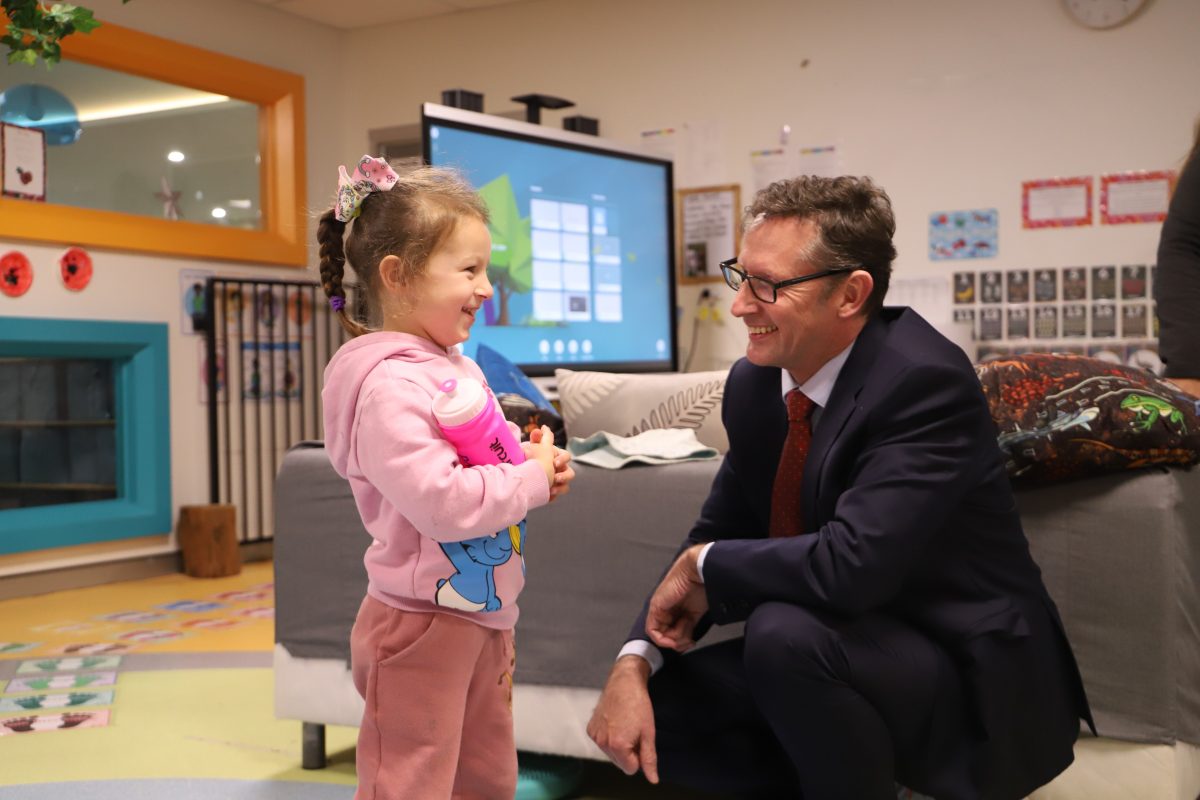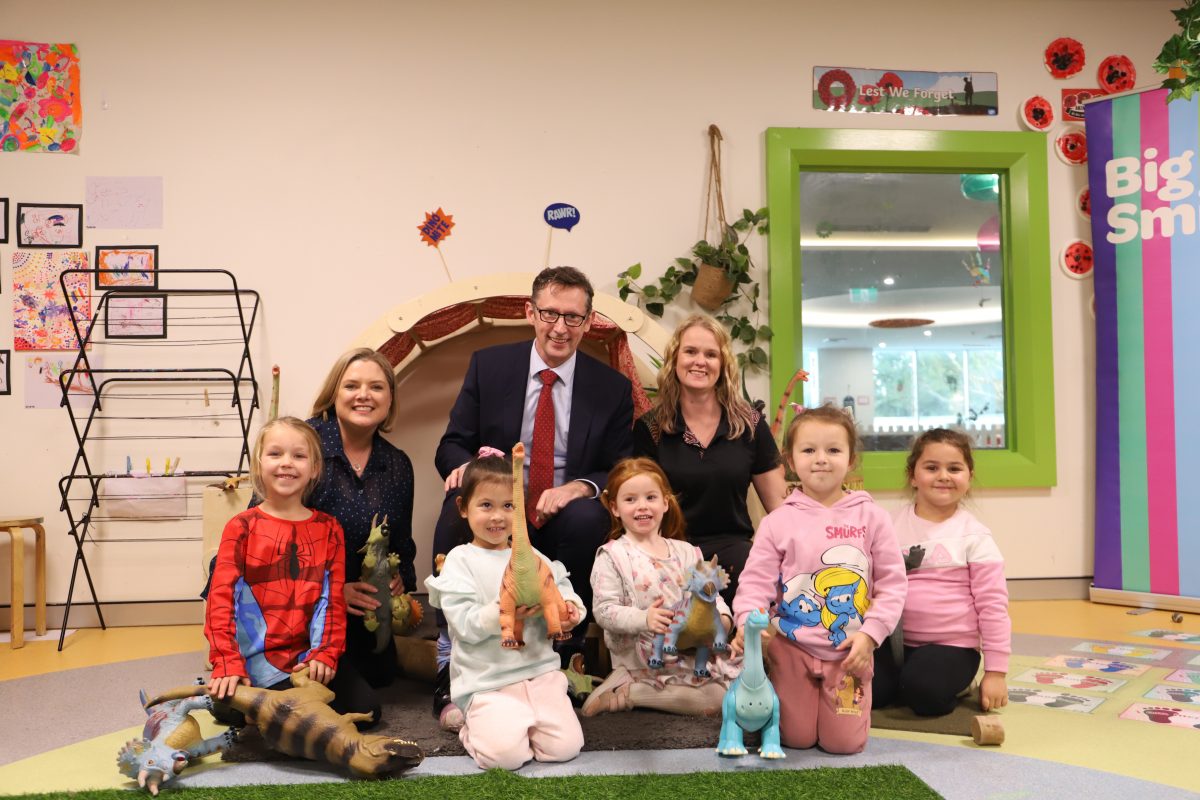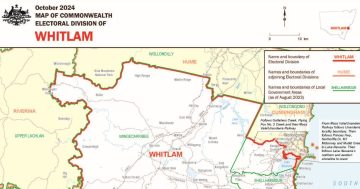
Minister Stephen Jones hopes new subsidies will improve access and ease financial pressures on families. Photos: Supplied/Blair Arnold.
Childcare costs are about to become cheaper for families as new subsidies take effect, but early educators are still calling for more action to fix the sector and attract more quality employees.
The Federal Government’s support package, which is part of a $4.5 billion investment in the sector, came into effect on 1 July and will increase the subsidy for any household earning less than $530,000 a year.
The Assistant Treasurer and Member for Whitlam, Stephen Jones, said the changes were to help ease cost of living pressures and make it more viable for families to return to work.
“The rebate works on a percentage basis, so it’s 90 per cent for a household of a combined income of $80,000 a year and that tapers off at one per cent for every $5000 more earned,” Minister Jones said. “We think it’s fair by providing the most support to the people who need it the most.”
Amanda Archer, executive leader of children’s services at Big Fat Smile, welcomed the boost for the many struggling families who use its services.
“We advocate for anything that benefits families and we’ll see 95 per cent of our families have increased subsidies and that will reduce their out-of-pocket costs,” Amanda said.
“So for us that’s fantastic news because that allows them to increase their days in care and we all know that more hours in quality education provides better outcomes for children.”
But she said more funding needed to be allocated to the sector specifically for the workforce, so that these centres can employ quality staff without needing to pass on those costs to customers.
“It’s definitely a balance, we pay above award remuneration and we have above award conditions for our educators, but it’s still difficult to attract and retain quality educators. ”
“We’re very conscious of the impact on families,” Amanda said. “We’ve just done a 6 per cent pay increase for this year in line with the rising cost of living, but the only lever we have at the moment is childcare fees, so we’re advocating with the government at the moment to have more levers so that it doesn’t fall to the family.”
Minister Jones said the government would continue to work with the industry to try and find solutions.
“We know the workers and the businesses within the sector want to attract more skilled staff and want to retain them and a big challenge has been around pay, as it is in aged care, as it is in other parts so we want to work with the providers to make sure that they’re viable and they can attract and retain the workers they need.”

Early childhood education centres are calling for more funding to attract quality staff.
He said that the government and operators need to treat the issue seriously to help early education become a more attractive career option.
“Saying that this is education, not babysitting, and backing that up with quality standards and education standards and career paths.”
Minister Jones said that removing barriers and improving access to these services evens the playing field for kids coming from disadvantaged backgrounds.
“Early childhood education is a leveller, we know that the kids that are coming through here when they do end up at primary school are well ahead of where they would otherwise be,” he said. “We can see that through the kids who have even spent one or two days a week in early childhood education makes a difference.”
And said the Prime Minister would eventually like to see child care become like Medicare – available to everyone.
“We’re on a journey to get there, we’ve got to work with the states and territories because they have a big role to play in the preschool part of the equation as well,” he said. “We need to get the two bits of this same puzzle working together.”


















